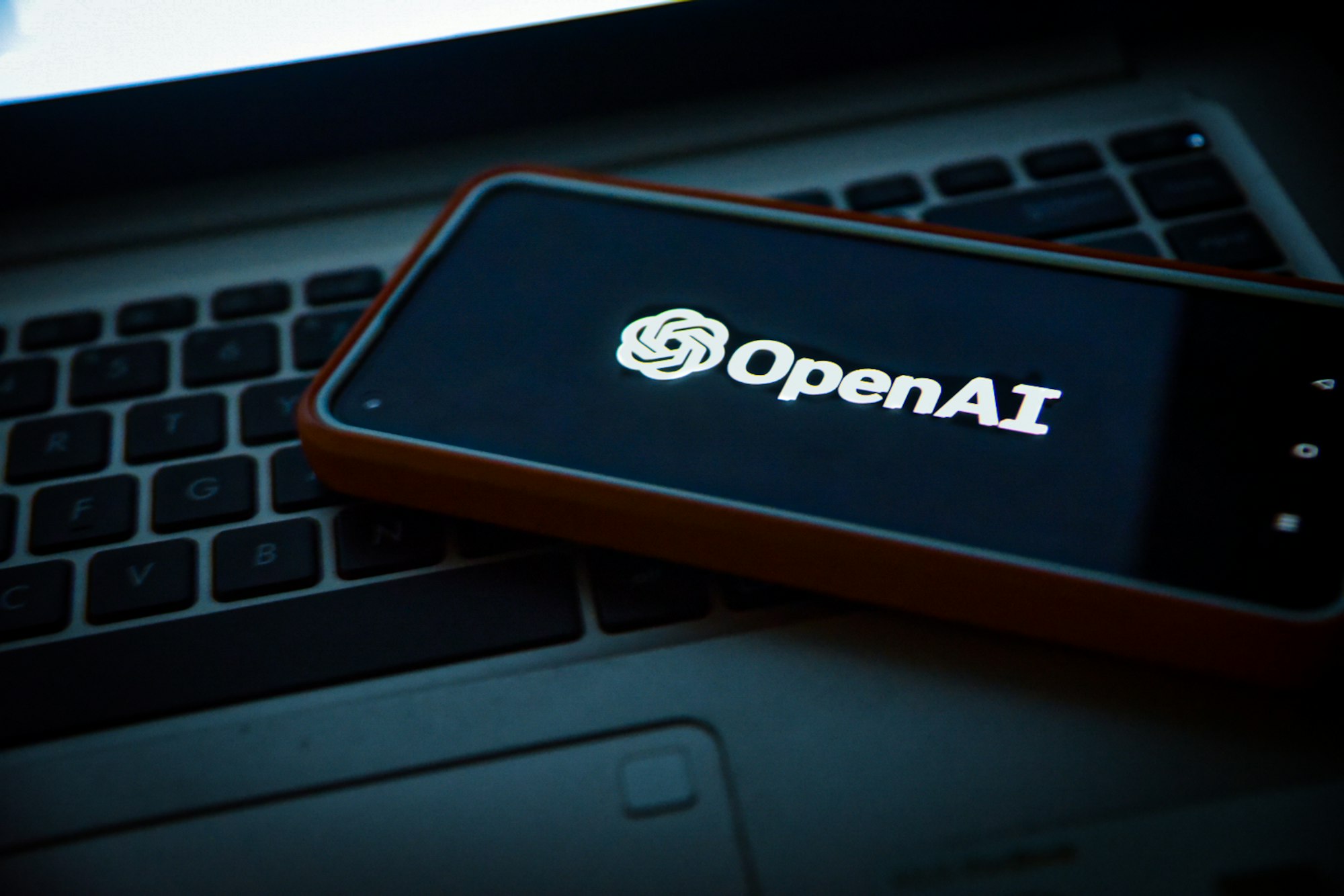With this move, Salesforce joins other major technology companies in the race to make it easier for businesses to use AI agents through comprehensive platforms.
The timing of this launch is crucial. AI agents are currently transforming how companies operate by taking on complex tasks that used to require human involvement. These tasks can range from handling customer service inquiries to analyzing data and making decisions. Unlike traditional systems that simply follow predefined instructions, these advanced AI agents have the ability to think critically, adapt to different situations, and perform actions across various departments within a business.
Salesforce Agentforce 360 addresses a pressing challenge : building and managing AI agents at scale without drowning in complexity. The platform brings together essential tools under one roof, eliminating the fragmented approach that has plagued many organizations attempting to deploy AI solutions.
What makes this platform unique is its foundation built on insights from over 12,000 real-world Agentforce implementations. Instead of theoretical capabilities, you're getting access to proven features specifically designed to tackle the messy realities of implementing AI in large enterprises.
The main benefit of Agentforce 360 is simple : it gives you complete control over your AI agents. From the initial development stage all the way through deployment and ongoing management, this platform provides a centralized solution for overseeing your AI initiatives. By addressing concerns related to scalability and reliability head-on, this unified approach aims to overcome the barriers that have prevented widespread adoption of AI agents in business settings.
Key Features of Salesforce Agentforce 360
Salesforce built Agentforce 360 around three core components that work together to deliver reliable AI agent functionality. These components address the fundamental challenges you face when deploying AI agents in enterprise environments.
1. Agent Script : Customizing Agent Logic
Agent Script serves as the expression language that defines your agent's logic and behavior. You can think of it as the programming framework that lets you specify exactly how your AI agents should respond to different scenarios. This scripting capability gives you granular control over agent actions, allowing you to create custom workflows that align with your specific business requirements. You're not locked into predefined behaviors—you can design agents that follow your organization's unique processes and decision trees.
2. Atlas Reasoning Engine : Ensuring Reliable Decision-Making
The Atlas Reasoning Engine powers the decision-making capabilities of your AI agents through hybrid reasoning. This approach combines multiple reasoning methods to ensure your agents make reliable, contextually appropriate decisions. The engine doesn't rely on a single reasoning pathway; instead, it evaluates situations using various logical frameworks simultaneously. When your agent encounters a customer query, the Atlas Reasoning Engine processes the request through different reasoning models, weighing factors like historical data, business rules, and contextual information before determining the optimal response.
3. Flexibility and Reliability in Action
Hybrid reasoning significantly improves agent reliability because it reduces the risk of single-point failures in decision-making. Your agents can handle edge cases more effectively when they're not dependent on one reasoning approach. The system cross-validates decisions across multiple reasoning pathways, which means you get more consistent and trustworthy outcomes.
The combination of Agent Script and the Atlas Reasoning Engine gives you both flexibility and reliability. You define the boundaries and logic through Agent Script, while the Atlas Reasoning Engine ensures your agents operate intelligently within those parameters. This dual-layer approach addresses two critical needs : customization for your specific use cases and dependable performance at scale.
Insights from Real-World Deployments
The evolution of Agentforce 360 stems directly from practical experience gained through over 12,000 Salesforce Agentforce deployments across diverse enterprise environments. This extensive real-world testing has provided invaluable data that shaped the platform's current capabilities and reliability standards.
Key Findings from Deployments
You'll find that these deployments revealed critical patterns in how enterprises actually use AI agents versus how they initially planned to deploy them :
- Organizations needed more granular control over agent decision-making processes, which directly influenced the development of Agent Script's expression language.
- Companies discovered that agents required the ability to handle unexpected scenarios without breaking workflows, leading to enhancements in the Atlas Reasoning Engine's hybrid approach.
- Enterprises struggled with maintaining consistent behavior across multiple agents operating in different departments, driving Salesforce to prioritize centralized control mechanisms within Agentforce 360.
- Agents integrated into existing Salesforce workflows achieved significantly higher adoption rates compared to standalone solutions, validating the platform's unified architecture approach.
These insights have been instrumental in shaping the features and functionalities of Agentforce 360, ensuring it meets the evolving needs of enterprises.

Comparative Analysis with Other Major Players in the Market
The enterprise AI agent landscape has become increasingly competitive as major cloud providers race to consolidate their offerings. While Salesforce unveils its Agentforce 360 platform to build, deploy AI agents with a focus on CRM-centric workflows, competitors are taking distinctly different approaches to solve similar challenges.
1. Google Gemini Enterprise
Google Gemini Enterprise represents Google's answer to unified AI agent management. The platform merges Google's powerful Gemini models with Agentspace capabilities, creating an environment where organizations can build agents while maintaining strict governance protocols.
- Collaboration features : Google's approach emphasizes collaboration features through Agentspace, allowing teams to share knowledge bases, conversation histories, and agent configurations across departments.
- Centralized governance framework : The centralized governance framework ensures that enterprises can monitor agent behavior, set usage policies, and maintain compliance standards across all deployed AI assistants.
- Attractiveness for Google Workspace users : This makes Google Gemini Enterprise particularly attractive for organizations already invested in Google Workspace ecosystems.
2. AWS Quick Suite
AWS Quick Suite takes a different path entirely. Amazon's platform centralizes research capabilities, business intelligence tools, and automation services into a single interface.
- Focus on data analytics : You'll find that AWS Quick Suite focuses heavily on data analytics and integration with existing AWS services like S3, Redshift, and SageMaker.
- Multi-source querying and insight generation : The platform allows you to build agents that can query multiple data sources, generate insights, and automate routine business processes without switching between different tools.
- Strength in cloud infrastructure : AWS's strength lies in its mature cloud infrastructure and the ability to handle massive data workloads.
3. Salesforce's Agentforce 360
Salesforce's strategy with Agentforce 360 distinguishes itself through its customer-centric design philosophy.
- Specific needs of customer-facing operations : Where Google prioritizes collaboration and AWS emphasizes data processing, Salesforce built its platform around the specific needs of customer-facing operations.
- Granular control over agent behavior : The Atlas Reasoning Engine and Agent Script language provide granular control over agent behavior in sales, service, and marketing contexts.
- Pre-built templates for CRM scenarios : You get pre-built templates designed specifically for common CRM scenarios, something neither Google nor AWS offers with the same depth.
- Native integration with Salesforce ecosystem : The platform integrates natively with Salesforce's existing ecosystem, allowing you to deploy agents that already understand your customer data structure, business processes, and workflow automations.

Addressing Challenges in Adopting Enterprise AI Agents
The excitement around AI agents is about to face a harsh reality. According to research by Gartner, more than 40% of agentic AI projects will be abandoned by the end of 2027. This prediction isn't due to technological limitations but rather fundamental business challenges—rising costs and the inability to prove clear value.
Understanding the Reasons Behind Project Failures
It's crucial for you to grasp what factors are causing these failures. The same pattern is occurring across organizations of all sizes :
- Companies are rushing to implement AI agents without setting up proper systems for success.
- They are heavily investing in technology while overlooking the strategic planning needed to make these investments worthwhile.
Common Mistakes Leading to AI Agent Project Failures
Here are some common mistakes that are derailing AI agent projects :
- Inadequate risk management : Organizations are deploying AI agents without thoroughly assessing potential risks such as decision-making errors, data privacy issues, or compliance violations.
- Poor planning : Teams are launching AI initiatives without clear goals, success measures, or integration strategies.
- Unclear value propositions : Leadership is approving AI projects based on hype instead of solid business cases.
- Cost overruns : Initial estimates rarely consider the complete costs associated with AI agents—ongoing training, monitoring, maintenance, and continuous improvement.
These predictions from Gartner about AI project failures should serve as a wake-up call for you and your organization. It's essential not to take the deployment of AI agents lightly. The stakes are high, and there's little room for mistakes.
Best Practices for Successful Deployment with Agentforce 360
The difference between a successful AI agent deployment and a failed project often comes down to how you implement governance and integration from day one. Agentforce 360's centralized governance framework gives you the control mechanisms you need to maintain compliance across your entire AI agent ecosystem.
Establishing Robust Governance Controls
You need to set clear boundaries for your AI agents before they interact with customers or handle sensitive data. Agentforce 360's governance capabilities let you define permission levels, data access restrictions, and approval workflows for each agent you deploy. You can monitor agent actions in real-time, review decision logs, and quickly disable agents that exhibit unexpected behavior. This centralized oversight becomes critical when you're managing dozens or hundreds of agents across different departments.
The platform's audit trail functionality tracks every agent interaction, creating a compliance record that satisfies regulatory requirements. You can establish role-based access controls that determine which team members can modify agent logic, deploy new agents, or access sensitive customer data through agent interactions.
Embedding AI into Workflows Effectively
Your AI agents deliver maximum value when they operate within your existing business processes rather than forcing users to adapt to new systems. Agentforce 360 integrates directly with Salesforce's ecosystem, allowing you to embed agents into the tools your teams already use daily.
Start by identifying high-volume, repetitive tasks where agents can provide immediate impact. Customer service teams benefit from agents that handle routine inquiries, freeing human agents for complex issues requiring empathy and judgment. Sales teams gain efficiency when agents automate lead qualification and follow-up scheduling.
You should deploy agents incrementally, starting with a single use case, measuring results, and expanding based on demonstrated ROI. This approach lets you refine agent behavior, gather user feedback, and build organizational confidence in AI capabilities. The Agent Script expression language gives you the flexibility to customize agent logic as you discover new optimization opportunities within your workflows.

Future Trends in Enterprise AI Agents and Unified Platforms
The way organizations use AI is changing. Instead of using many different tools for automation, companies are now looking for ways to bring everything together. Salesforce has introduced its Agentforce 360 platform, which will allow businesses to create and use AI agents alongside similar offerings from Google and AWS. This shows that the industry is moving towards consolidation rather than fragmentation.
1. Multi-Modal Agent Capabilities
One of the key trends we can expect to see is the rise of multi-modal agent capabilities. This means that AI agents will be able to handle more than just text-based interactions. They will also be able to process images, analyze documents, and interpret complex data sets all within a single workflow. This technology will enable AI agents to take on more advanced tasks without needing multiple specialized tools.
2. Low-Code and No-Code Agent Development
Another trend is the growth of low-code and no-code agent development. This means that people who may not have extensive technical knowledge, such as business analysts or domain experts, will now be able to create functional AI agents on their own. This shift in power will significantly speed up the time it takes to deploy these agents, going from months or weeks down to days.
3. Hybrid Reasoning Architectures
We can also expect to see a rise in hybrid reasoning architectures becoming standard practice. More platforms will start combining rule-based logic with machine learning models in order to create AI agents that are both predictable and adaptable. This approach addresses some of the reliability issues associated with purely generative AI solutions.
4. Cross-Platform Agent Orchestration
Another important development is the need for cross-platform agent orchestration. In order for AI agents to be truly effective, they must be able to work across different systems and pull data from various sources while still maintaining consistent behavior. Unified platforms like Agentforce 360 aim to tackle this challenge by providing centralized control mechanisms that span an organization's entire technology stack.
5. Real-Time Monitoring and Adjustment Capabilities
Finally, we can anticipate an increase in the integration of real-time monitoring and adjustment capabilities into AI systems. This means that organizations will have the ability to change how their AI agents operate based on performance metrics without having to go through lengthy redeployment processes every time there is an issue or improvement needed.
These trends indicate a shift towards more integrated and flexible approaches when it comes to enterprise-level artificial intelligence solutions. As these technologies continue evolving, businesses should stay informed about these developments so they can leverage them effectively within their own operations.
Conclusion
Salesforce's innovation in AI agents marks a significant change in how businesses handle automation and intelligent workflows. With the introduction of its Agentforce 360 platform, Salesforce is offering more than just another tool—it's providing a comprehensive solution to the fragmentation that has hindered widespread adoption of enterprise AI.
Why Agentforce 360 Matters
Unified platforms like Agentforce 360 simplify the complexities involved in managing multiple vendors, inconsistent governance frameworks, and separate deployment processes. Here's what you can expect :
- Centralized control over your AI initiatives
- Standardized compliance protocols across all deployments
- The ability to scale AI agents throughout your organization without having to reinvent the wheel for each specific use case
A Proven Framework for Success
The foundation of Agentforce 360 is built on insights gained from over 12,000 real-world deployments. This means that instead of relying on experimental technology, you have access to a proven framework when making strategic investments in your AI infrastructure.
Your Path Forward
To successfully implement AI agents within your enterprise, you need to focus on the following :
- Thoughtful planning that aligns your AI initiatives with measurable business outcomes
- Leveraging proven tools like Agentforce Builder to reduce implementation risks
- Establishing clear governance structures before scaling up agent deployments
- Learning from the failures predicted by Gartner—specifically inadequate risk management and poor planning which often lead to project failures
The Key to Success
It's important to note that simply deploying more agents won't guarantee success. The enterprises that thrive with AI agents are those who take a strategic approach :
- Building their capabilities intentionally
- Governing their operations effectively
- Selecting platforms specifically designed to tackle challenges at an enterprise scale
Agentforce 360 offers this foundation for success, but ultimately it is your planning and execution that will determine the outcome.
FAQs (Frequently Asked Questions)
What is Salesforce Agentforce 360 and why is it significant for enterprises ?
Salesforce Agentforce 360 is a unified platform designed to simplify the building and deployment of reliable AI agents at scale. It plays a significant role in transforming enterprise workflows and automation by enabling seamless integration of AI agents into business processes.
What are the key components of Salesforce Agentforce 360 ?
The key components of Agentforce 360 include the Agent Script, Atlas Reasoning Engine, and hybrid reasoning capabilities. These elements work together to enhance reliable agent behavior, decision-making processes, and allow customization through an agent logic expression language.
How does Salesforce Agentforce 360 compare with other AI agent platforms like Google Gemini Enterprise and AWS Quick Suite ?
Salesforce Agentforce 360 focuses on unified platform governance and seamless AI agent deployment, contrasting with Google's Gemini Enterprise that combines Gemini models with Agentspace for governance, and AWS Quick Suite which centralizes research, business intelligence, and automation services. Each platform offers distinct strategies for AI agent control tailored to enterprise needs.
What challenges do enterprises face when adopting AI agents, and how does Agentforce 360 address them ?
Enterprises often encounter challenges such as high costs, unclear value realization, inadequate risk management, and poor planning leading to over 40% of AI projects being scrapped by 2027 per Gartner predictions. Agentforce 360 addresses these issues by providing centralized AI governance capabilities and tools that support effective planning and compliance.
What best practices does Salesforce recommend for successful deployment using Agentforce 360 ?
Salesforce recommends leveraging the platform's centralized governance features to maintain compliance, embedding AI agents effectively into existing workflows to maximize ROI, and utilizing proven tools like Agentforce Builder for thoughtful planning to ensure successful outcomes in enterprise AI adoption.
What future trends in enterprise AI agents does Salesforce foresee with platforms like Agentforce 360 ?
Salesforce anticipates emerging trends in agentic tool development that will further impact business automation services. Unified platforms like Agentforce 360 are expected to play a strategic role in simplifying enterprise-wide AI adoption and governance, driving innovation in how businesses deploy intelligent automation solutions.




